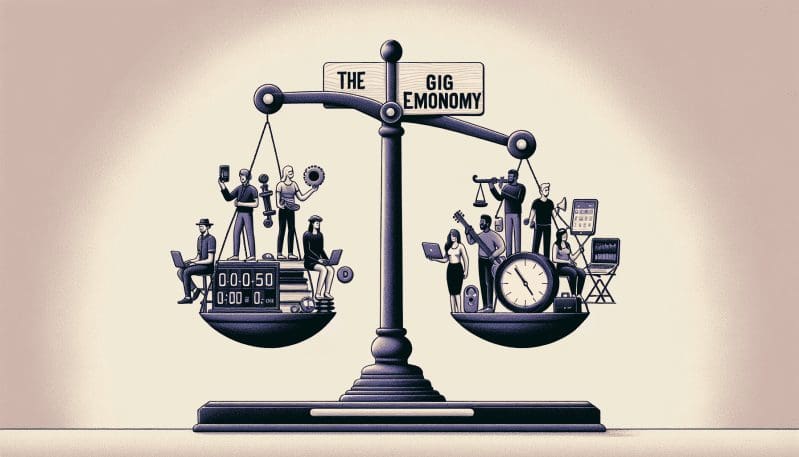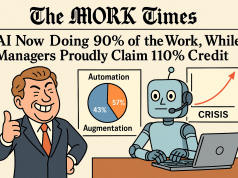In recent years, the traditional employment landscape has undergone a seismic shift—ushered in by the burgeoning gig economy. This landscape, once dominated by 9-to-5 jobs with clear career trajectories and benefits, is increasingly giving way to a more flexible but unpredictable on-demand job market. The gig economy has become a buzzword, synonymous with the freedom to work where, when, and as much as one wants. But is this new economy a boon or a bane for the modern worker?
The gig economy encapsulates a variety of work arrangements including freelancers, independent contractors, and part-time workers taking on short-term tasks, projects, or ‘gigs’. Platforms like Uber, Airbnb, and Upwork have made it easier than ever for workers to find gig opportunities, but this convenience often comes at the cost of job security and traditional workplace benefits.
**Job Security and Flexibility**
For many, the gig economy offers an unparalleled level of flexibility. The ability to set one’s own hours and to have control over the amount of work taken on is an undeniable perk. However, the flip side of this is the inherent instability—it can mean an unpredictable income, lack of job security, and absence of safety nets like unemployment insurance or worker’s compensation.
**Work-Life Balance**
While the prospect of working from anywhere at any time can contribute to a better work-life balance for some, for others, it translates to always being ‘on-call’. The blurring of lines between personal and professional life can lead to stress and burnout. Yet, for parents, caregivers, and students, the gig economy can provide the flexibility that more traditional jobs do not.
**Career Progression**
Career advancement in the gig economy can look very different. There is no ladder to climb or promotions to aim for. Instead, workers must continuously develop their skills and seek out new opportunities to stay relevant and command higher rates. Some thrive in this environment; others struggle without the structure and support a traditional job provides.
**Diverse Perspectives**
The gig economy does not affect all workers equally. Freelancers may embrace gig work for its autonomy, while contract workers might lament the lack of benefits and full-time employment security. Full-time employees supplementing their income through gig work may find it a useful buffer but grapple with the added workload.
**Regulatory and Corporate Policy Responses**
As the gig economy grows, so does the debate over regulations needed to protect gig workers. Some argue for reclassifying gig workers as employees to extend benefits, while others advocate for a new category of worker with a different set of protections. Companies are also exploring benefits like health insurance and retirement plans for gig workers, acknowledging the changing nature of work.
In conclusion, the gig economy embodies the confluence of freedom and uncertainty. It offers the allure of flexibility and independence but raises serious questions about the erosion of traditional worker protections. As society grapples with these changes, the goal should be to strike a balance—a framework that allows the gig economy to flourish without leaving its workforce vulnerable. The dialogue is ongoing, and its outcomes will shape the future of work for generations to come.




























